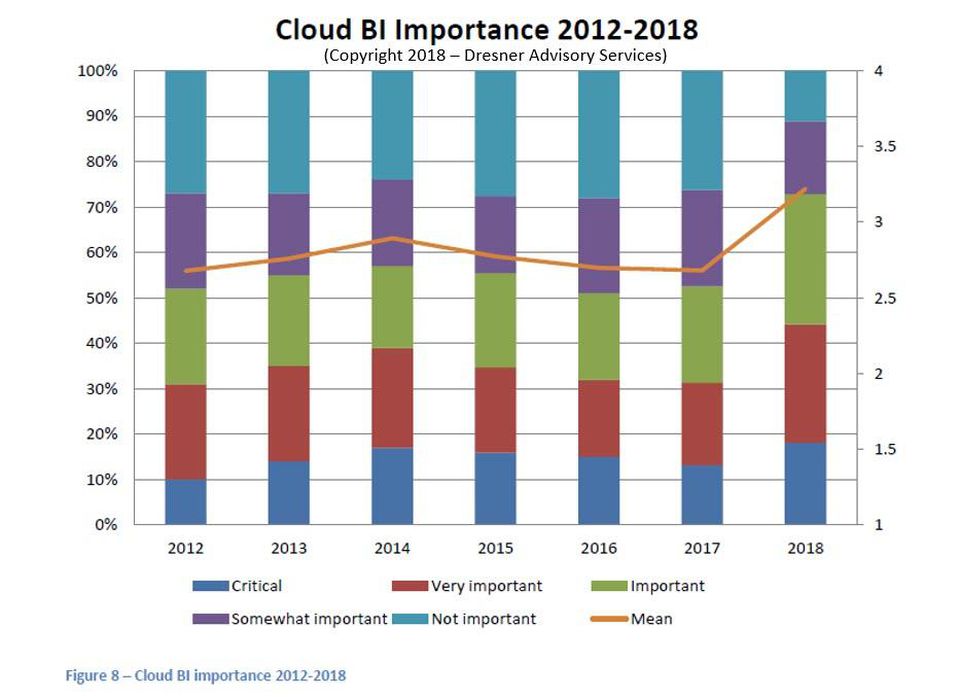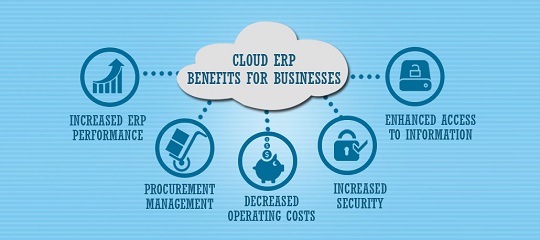… [Trackback]
[…] Here you can find 99388 additional Info on that Topic: blog.neterra.cloud/en/5-reasons-to-put-erp-in-the-cloud/ […]

Cloud ERP (Enterprise Resource Planning) systems have gained a lot of popularity over the past few years due to their operation efficiency. Whether you want to centralize your business process information, or you need a simplified IT infrastructure, cloud ERP systems are industry game changers.
Recent research suggests that the cloud-based ERP market size will increase to over USD $29 billion by the end of 2019. It was a USD$18.52 billion market in 2016. Nearly 76% of businesses either plan on transferring or have already shifted to the cloud.
Companies aren’t making the adjustment because it’s trendy. These moves are sound business decisions that come with a number of benefits. Here are five reasons why:
Cloud technology enables businesses to store data in the cloud. This also allows businesses to access data remotely without requiring complex configuration or robust IT staffing. As a result, over the past few years, an increasing number of companies have deployed Business Intelligence (BI) in the cloud.
Cloud BI adoption is growing — 2018 figures nearly doubled 2016 adoption levels. About 66% of businesses that consider themselves successful with BI initiatives currently use the cloud to support their ERP.

Cloud BI is used extensively among sales and marketing teams, given their dependence on real-time data for understanding and improving their customer experience.
Further, in terms of data storage and data access, the cloud ERP offers several competitive benefits over on-premise ERP. Cloud technology is highly scalable, making it ideal for storing high volumes of data. The technology also provides easy and quick access to data gathered by IoT technology. These benefits have led the most innovative and renowned ERP vendors to invest heavily in cloud BI.
Compared to on-premise ERP systems, cloud-based ERP systems are very fast and easy to implement. You can configure the technical environment within 24 hours. The faster configuration gives businesses more efficient and productive time to focus on the business aspect of the transformation.
There are a number of companies that don’t have sufficient IT staffing. Many of these organizations fail to afford the same resources and infrastructure as cloud providers. While a business may be skilled in information technology, it is not necessarily its core competency. The simpler and faster implementation of the cloud-based ERP system make it a better option.
Cloud technology is highly modern and easier to use than on-premise software. As a result, many employees quickly embrace and adopt cloud technology systems. However, this doesn’t mean that organizations won’t need to provide high-end training to their employees. It only means they might experience less resistance from them.
There will, however, have to be some investment in communication. With any new technology you adopt, it’s important to have proper communication with employees about what benefits the technology will bring to the organization. Employees must be made to understand how the new technology will make their jobs easier. With a little communication, employees will adopt a cloud-based ERP system with zeal.
Cloud-based ERP systems are flexible because organizations can access such systems from anywhere. All that’s required is an Internet-enabled device. This means informed business decisions can be made on the go.
Further, every employee in a company using this system interacts with centralized data through a common interface. This means even more flexibility as data can be shared more easily across different locations and departments.
Data breaches are very common in the business space. To avoid potential data breaches, many companies now use cloud-based ERP systems as cloud vendors have highly secure hosting environments.

Some companies’ security officers worry about the security of their data in the cloud. However, cloud-based ERP vendors are very vigilant where security is concerned because of the extremely high stakes involved.
Cloud vendors have so much to lose. Their multiple clients make them common targets for malicious users who can cause security breaches. This might appear as a disadvantage on the surface, but it actually forces vendors to introduce and implement sophisticated security measures to stay several steps ahead of any threats. That, of course, is a good thing for the business making use of such vendors’ services.
If you are a growing company, cloud-based ERP solutions can speed up your growth and ease the processes within the company. Investments in cloud-based ERP systems are the norm now, as organizations realize the benefits. Individual organizations invest as much as $3.5M on cloud platforms and services today, with the average investment at $2.2M. The vast majority of companies — 73 percent, to be exact — make use of the cloud for at least part of their computing infrastructure. Thus, cloud technology is already quite common in the business space, and cloud-based ERP systems are the smart choice in today’s environment. It’s the right time to move your ERP system to the cloud if you haven’t already.
… [Trackback]
[…] Here you can find 99388 additional Info on that Topic: blog.neterra.cloud/en/5-reasons-to-put-erp-in-the-cloud/ […]
… [Trackback]
[…] Here you can find 98061 additional Info to that Topic: blog.neterra.cloud/en/5-reasons-to-put-erp-in-the-cloud/ […]
… [Trackback]
[…] Find More here to that Topic: blog.neterra.cloud/en/5-reasons-to-put-erp-in-the-cloud/ […]
… [Trackback]
[…] Find More here on that Topic: blog.neterra.cloud/en/5-reasons-to-put-erp-in-the-cloud/ […]
… [Trackback]
[…] Find More on that Topic: blog.neterra.cloud/en/5-reasons-to-put-erp-in-the-cloud/ […]
… [Trackback]
[…] Find More Information here on that Topic: blog.neterra.cloud/en/5-reasons-to-put-erp-in-the-cloud/ […]
… [Trackback]
[…] Info to that Topic: blog.neterra.cloud/en/5-reasons-to-put-erp-in-the-cloud/ […]
… [Trackback]
[…] Read More Information here on that Topic: blog.neterra.cloud/en/5-reasons-to-put-erp-in-the-cloud/ […]
… [Trackback]
[…] Read More to that Topic: blog.neterra.cloud/en/5-reasons-to-put-erp-in-the-cloud/ […]
… [Trackback]
[…] Read More Info here to that Topic: blog.neterra.cloud/en/5-reasons-to-put-erp-in-the-cloud/ […]
… [Trackback]
[…] Find More on on that Topic: blog.neterra.cloud/en/5-reasons-to-put-erp-in-the-cloud/ […]
… [Trackback]
[…] Info to that Topic: blog.neterra.cloud/en/5-reasons-to-put-erp-in-the-cloud/ […]
… [Trackback]
[…] There you will find 6099 more Information to that Topic: blog.neterra.cloud/en/5-reasons-to-put-erp-in-the-cloud/ […]
… [Trackback]
[…] Read More on that Topic: blog.neterra.cloud/en/5-reasons-to-put-erp-in-the-cloud/ […]
… [Trackback]
[…] Read More Info here on that Topic: blog.neterra.cloud/en/5-reasons-to-put-erp-in-the-cloud/ […]
… [Trackback]
[…] There you can find 81929 additional Info to that Topic: blog.neterra.cloud/en/5-reasons-to-put-erp-in-the-cloud/ […]
… [Trackback]
[…] Information to that Topic: blog.neterra.cloud/en/5-reasons-to-put-erp-in-the-cloud/ […]